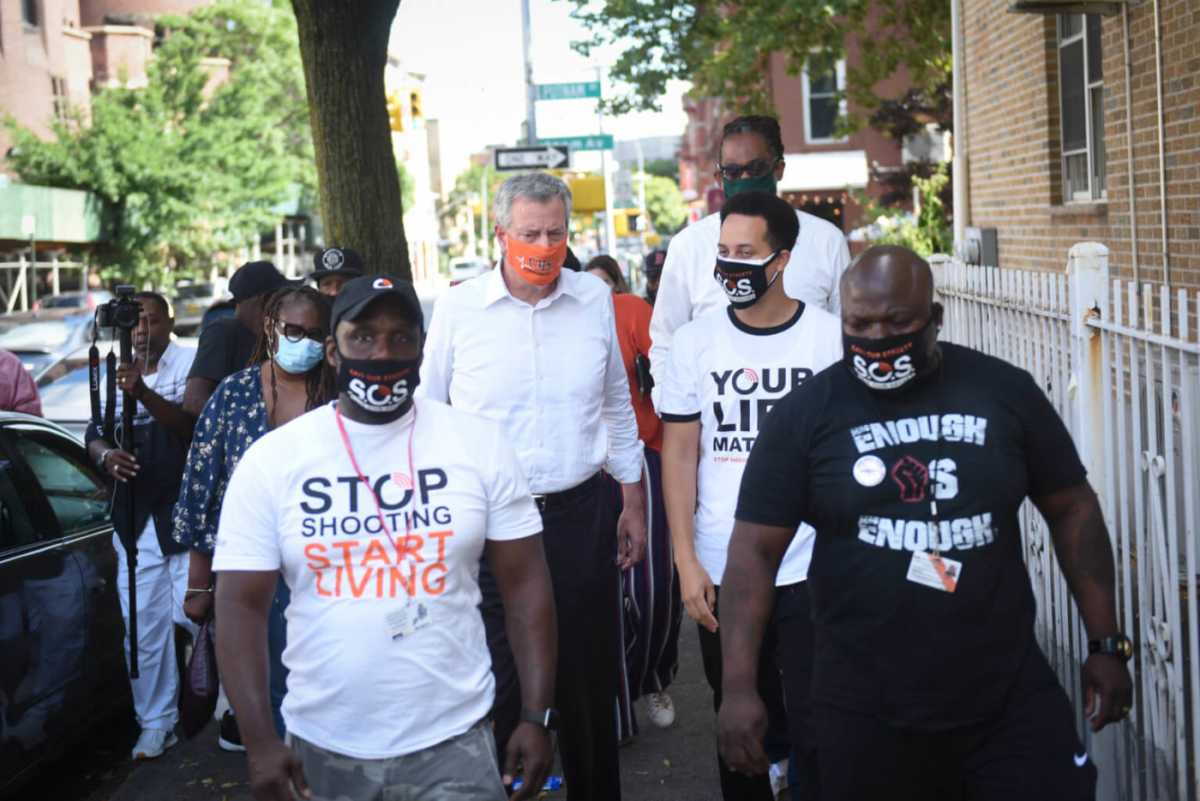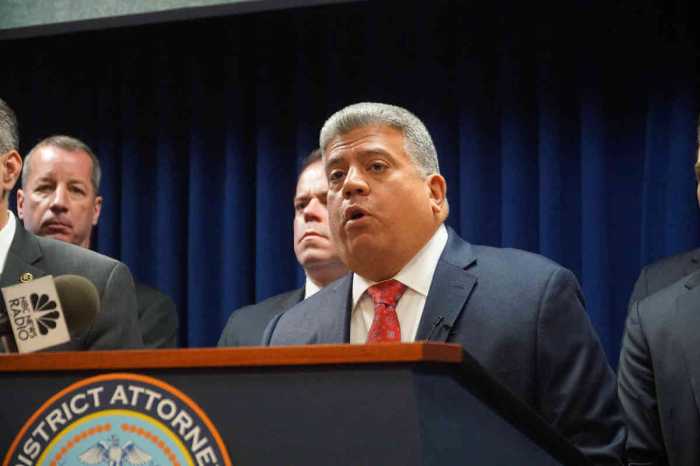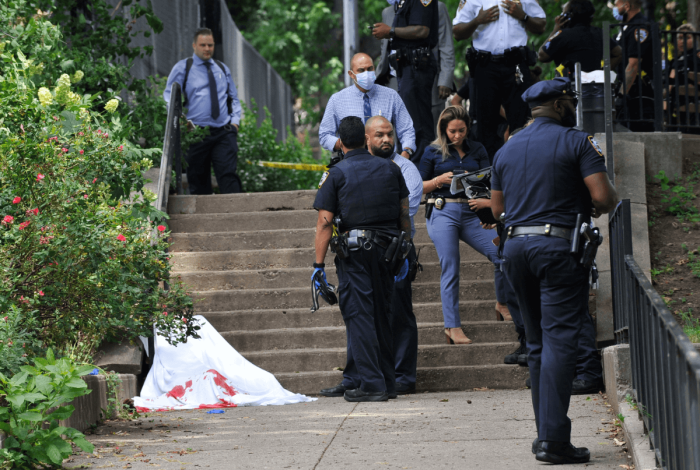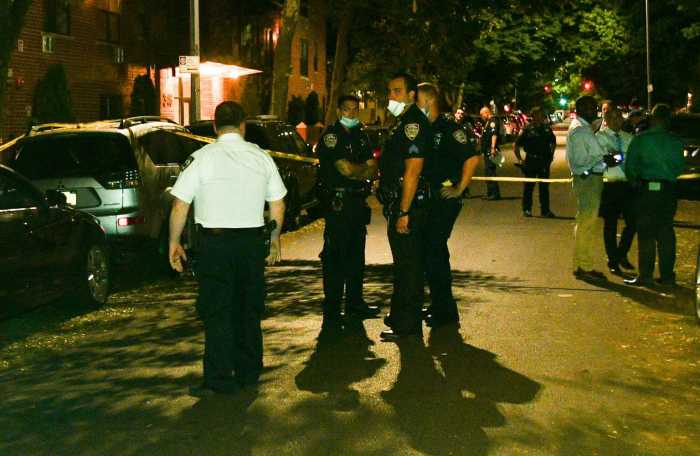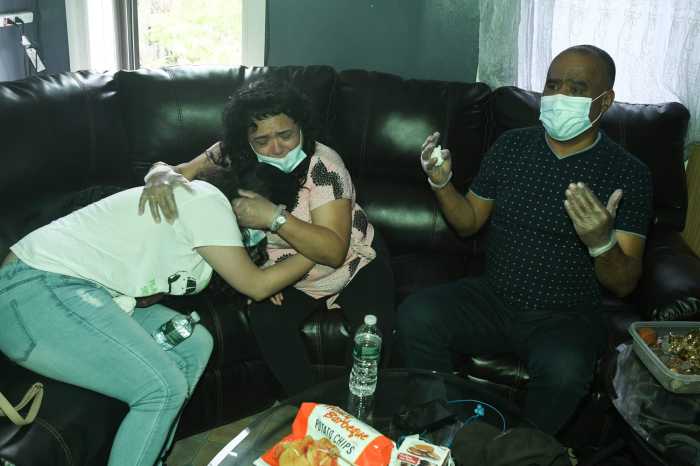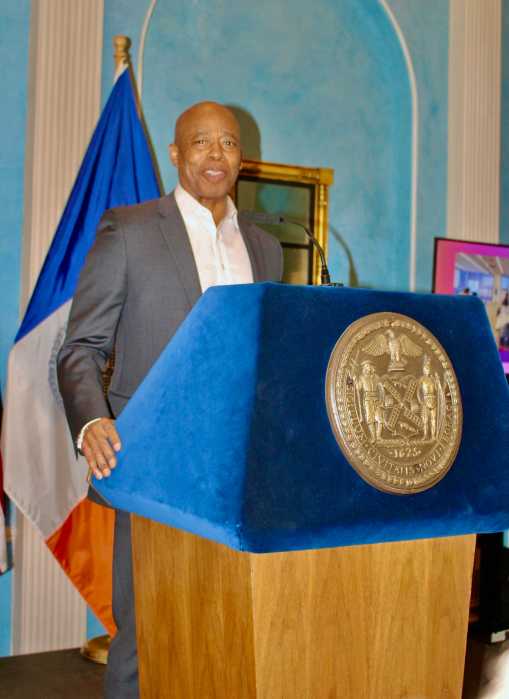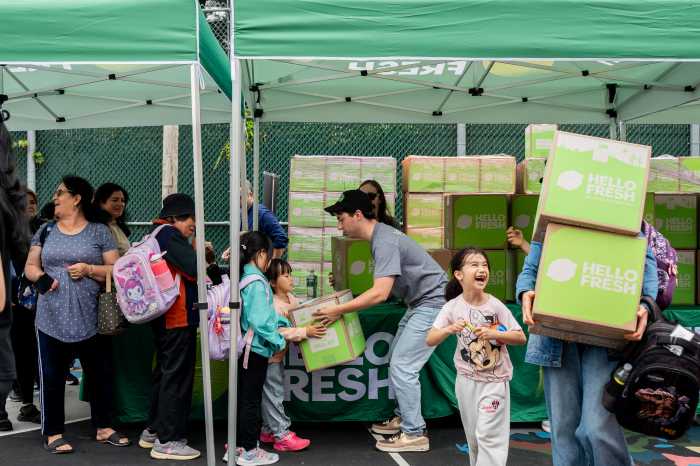Mayor Bill de Blasio, riding a wave of police reform on Tuesday, announced the expansion of the city’s Cure Violence initiative — a violence prevention program that works with at-risk communities to stop conflicts before they happen.
The evidence-based violence prevention program works with communities that have high levels of gun violence to employ “violence interrupters” and other outreach workers from the community who can help de-escalate situations and provide resources and positive outlets for at-risk youth, according to the city.
Five new police precincts will be outfitted with the program — including the 69th, 70th and 71st Precincts in Brooklyn. Queens’ 103rd Precinct and the Bronx’s 49th Precinct will also see the program by summer, de Blasio said.
The mayor’s administration is also looking to double the Cure Violence workforce in at least 29 precincts by June 1, in hopes of staving off an “anticipated” summer spike in gun violence, as seen last year.
“We need more resources in Black and brown communities to combat the anticipated surge in gun violence and we need to save lives. Cure Violence providers are a crucial part in de-escalating the underlying tensions across the city,” said East Flatbush Councilmember Farah Louis, one of three local pols to call into de Blasio’s March 23 press conference. “These are the everyday heroes who continue to show up at Occupy Our Streets and keep our community safe. I look forward to the new implementation that will position us to better address the root causes of gang and gun violence.”
The move comes as advocacy groups and city agencies are working together to reimagine public safety, de Blasio said.
“All of [these precincts] will now have this extraordinary initiative, saving lives, stopping conflict, avoiding retaliation. Doing the fundamental community-based things that go far beyond our normal conception of public safety. This is the new way of doing public safety,” he said.
With many inspired by last year’s tumultuous push for racial justice and police reforms, this “new way” of approaching neighborhood policing, public safety, and police accountability has been the mantra as of late.
In conjunction with six huge bills passed in 2020, the city took another big step on March 4 when they finally released Police Department records after a lengthy legal battle with police unions.
The Citizens Union on Tuesday released a report that expounds upon their recommendations to increase transparency and accountability in law enforcement. Their outline comes just before the April 1 deadline for local police to adopt a plan “that reinvents and modernizes police” with more community input, as mandated by Gov. Andrew Cuomo.
“It is important that all functions of government be transparent and accountable to the public, including law enforcement,” said Betsy Gotbaum, executive director of Citizens Union. “These recommendations will strengthen oversight of the NYPD, make law enforcement more accountable to the public, and help strengthen the faith that New Yorkers have in the police officers that serve them.”
The Citizen Union’s recommendations include things like re-establishing a deputy mayor for public safety, allowing the Civilian Complaint Review Board (CCRB) to appeal the police commissioner’s decisions, making the appointment of police commissioner subject to advice and consent of the City Council, and ending qualified immunity.
New York City’s last deputy mayor of public safety was Katherine N. Lapp, who served from 1990 to 1993 under former Mayor David Dinkins and as criminal justice coordinator under former Mayor Rudy Giuliani from 1994 to 1997 before switching gears to the run the MTA in 2002.
De Blasio, however, maintained that the current model, in which First Deputy Mayor Dean Fuleihan specifically focuses on police issues, has been very effective.
“Certainly you see that in the sheer extent of what’s happened in the last few months,” he said, adding that soon, an almost entirely new slate of city electeds will have to work together to ensure transparency within the Police Department.
This story first appeared on AMNY.com.


